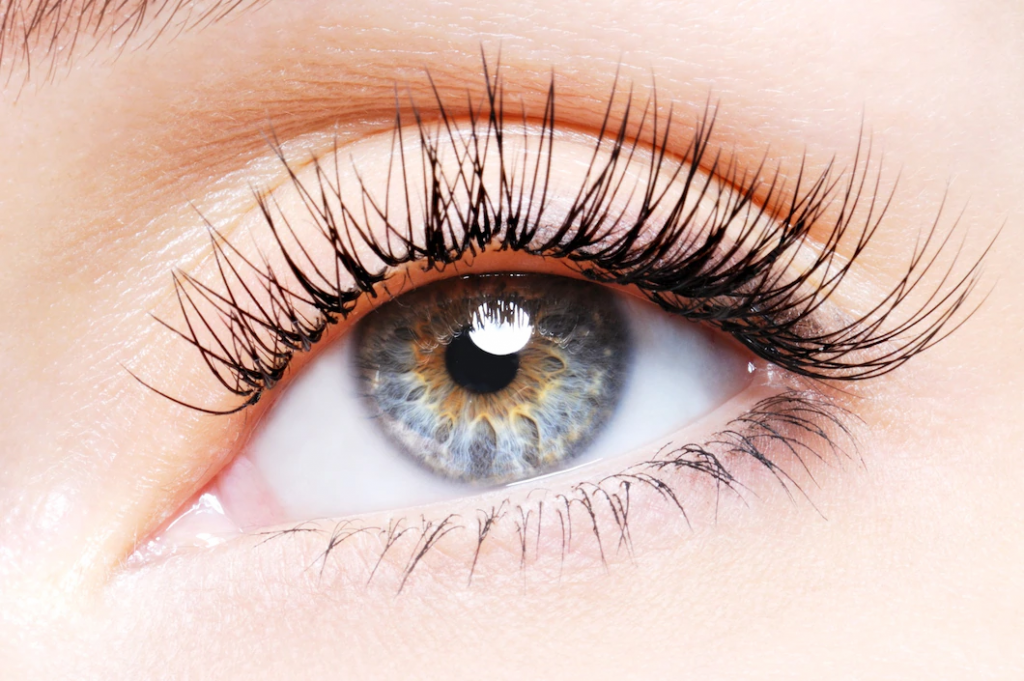The cornea turns thin and gets weaker over time. Resulting in it bulging into a cone shape, distorting your vision further. If the symptoms become severe, then you might need a corneal transplant.
In corneal collagen cross-linking, doctors use medication and ultraviolet (UV) light from a special machine to strengthen the tissues in your eye, strengthening the cornea, so it doesn’t bulge as it expands. For example, your eyes will take on some water to put ribs in. Consequently, this liquid breaks down the collagen fibers and can weaken the eye’s support apparatus or cause fluid to leak and blur vision even more.
Corneal cross-linking is one of the only ways to stop progressive Keratoconus from getting worse. It may also help you avoid a corneal transplant, which is major surgery.
Keratoconus Signs And Symptoms
Symptoms of Keratoconus can vary, so it is recommended that you consult with an eye specialist who can assess and diagnose the condition. Some signs of Keratoconus may include;
- Constant and regularly changing refractive errors
- Blurry vision
- Difficulty driving at night
- Increased light sensitivity
- Halos around lights and ghosting
- Eyestrain
- Headaches and general eye pain
- Eye irritation, excessive eye rubbing
Procedure:
Corneal cross-linking can be done right in your doctor’s office. It occurs first after eye drops that numb the eyes are applied, and then prescription medicine to calm you. You will then have specially formulated riboflavin (vitamin B2) eye drops that help the cornea absorb light better, which takes about 30 minutes for the liquid drops to soak into your cornea.
Then, you will lie down in a chair and look up at a light. You shouldn’t feel any pain during the keratoconus treatment because your eyes will be numb. The procedure takes about 1 to 1.5 hours to complete.

Types of Corneal Cross-Linking
There are two types of corneal cross-linking: epi-off and the experimental epi-on. In the epi-off technique, your doctor removes the cornea’s outer layer before putting in liquid drops. With the experiment, your doctor has a softer tissue layer to prepare an eye seamed, then pushes the liquid into it while retaining that top layer.
Who Should Get Corneal Cross-Linking?
The eye exam doesn’t reverse the problematic changes that occur in Keratoconus; instead, it just slows progression. However, since it can help, it’s best to talk to your doctor about getting an eye exam if you have Keratoconus.

How to Prepare for this surgery?
Don’t wear eye makeup, perfume, or after-shave on the scheduled procedure day. In most instances, you’ll be able to eat a light meal and drink fluids beforehand. You’ll also need someone handy to drive you home afterward since your eyesight will be affected. Carefully follow your appointment’s doctor’s instructions.
What Happens Afterward?
After the procedure, here’s what you do to take care of your eyes:
- You might feel discomfort for a few days. Your doctor will give medication if needed.
- Your doctor generally puts a contact lens in your eye to help it heal.
- It’s important not to rub your eyes for five days after the procedure.
- You might feel sensitive to light. Sunglasses can help.
- Inform your doctor about any pain or a sudden worsening of your eyesight.
Your Vision After Corneal Cross-Linking
After the procedure, your eyesight will initially feel weak or blurry. However, some vision changes will likely happen with time and gentle focused exercises. For example, you may be more sensitive to light and have a poorer vision for about one to three months following the corneal collagen cross-linking surgery.
Corneal cross-linking aims to slow the progression of your disease and prevent future vision problems, but sometimes this may be temporary. Also, it is possible that despite undergoing corneal cross-linking, you will still need new eyeglasses or contact lenses shortly.
Risks
Like most surgeries, corneal cross-linking can have various possible risks, like
- An eye infection
- Damage to the cornea or epithelium
- Eye pain or swelling
- Hazy vision, and blurred vision
Before you have the procedure, confirm your chances of having these issues with the doctor.
An eye is the greatest gift humans got to appreciate their surroundings, and it is important to take good care of them. This is where we come into the picture, and a clear vision has a dedicated team to take care of your vision. Contact us or book an appointment with us for any consultation or keratoconus treatment in Mumbai like corneal collagen cross-linking surgery.




